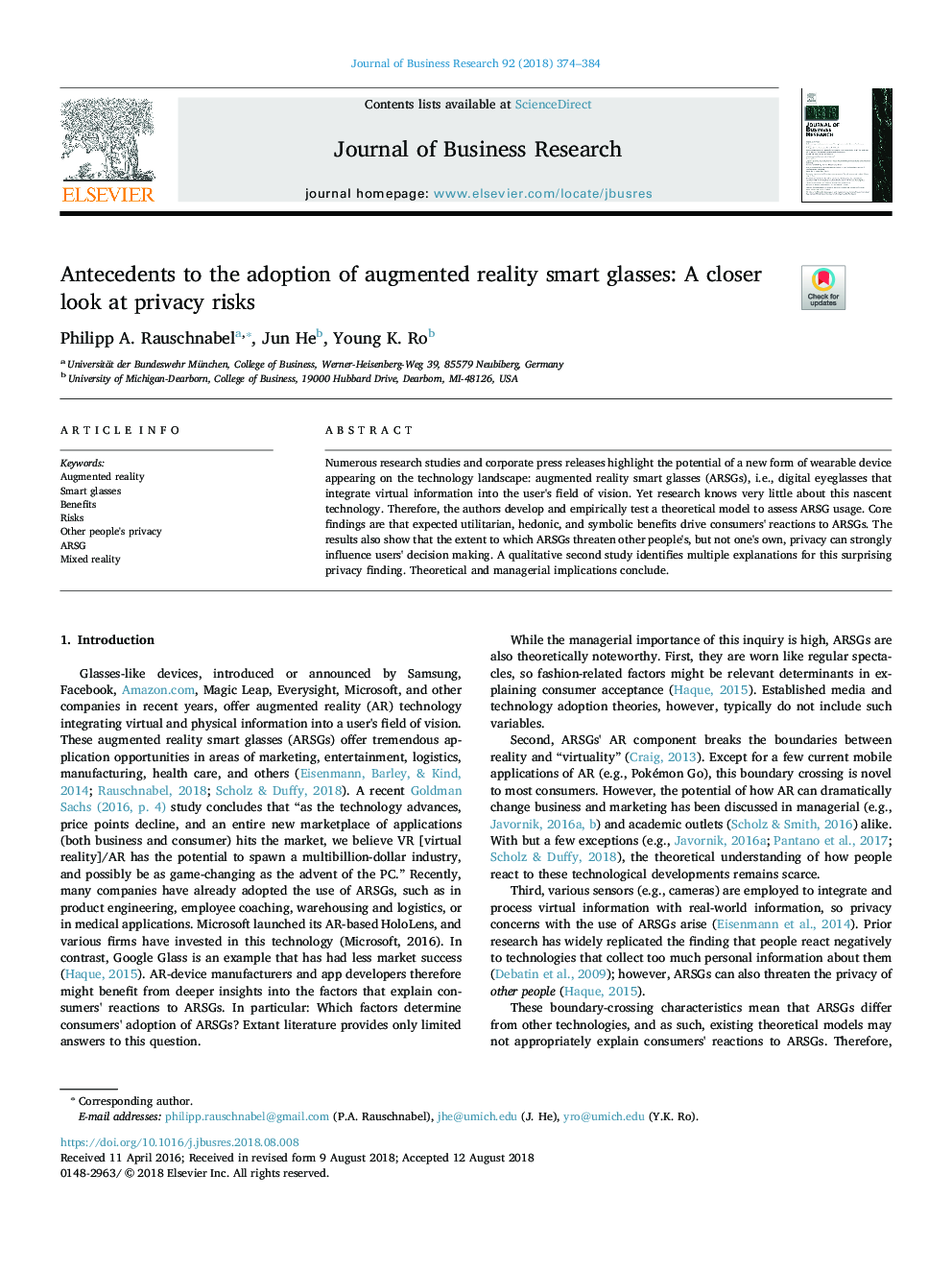| Article ID | Journal | Published Year | Pages | File Type |
|---|---|---|---|---|
| 11005113 | Journal of Business Research | 2018 | 11 Pages |
Abstract
Numerous research studies and corporate press releases highlight the potential of a new form of wearable device appearing on the technology landscape: augmented reality smart glasses (ARSGs), i.e., digital eyeglasses that integrate virtual information into the user's field of vision. Yet research knows very little about this nascent technology. Therefore, the authors develop and empirically test a theoretical model to assess ARSG usage. Core findings are that expected utilitarian, hedonic, and symbolic benefits drive consumers' reactions to ARSGs. The results also show that the extent to which ARSGs threaten other people's, but not one's own, privacy can strongly influence users' decision making. A qualitative second study identifies multiple explanations for this surprising privacy finding. Theoretical and managerial implications conclude.
Related Topics
Social Sciences and Humanities
Business, Management and Accounting
Business and International Management
Authors
Philipp A. Rauschnabel, Jun He, Young K. Ro,
